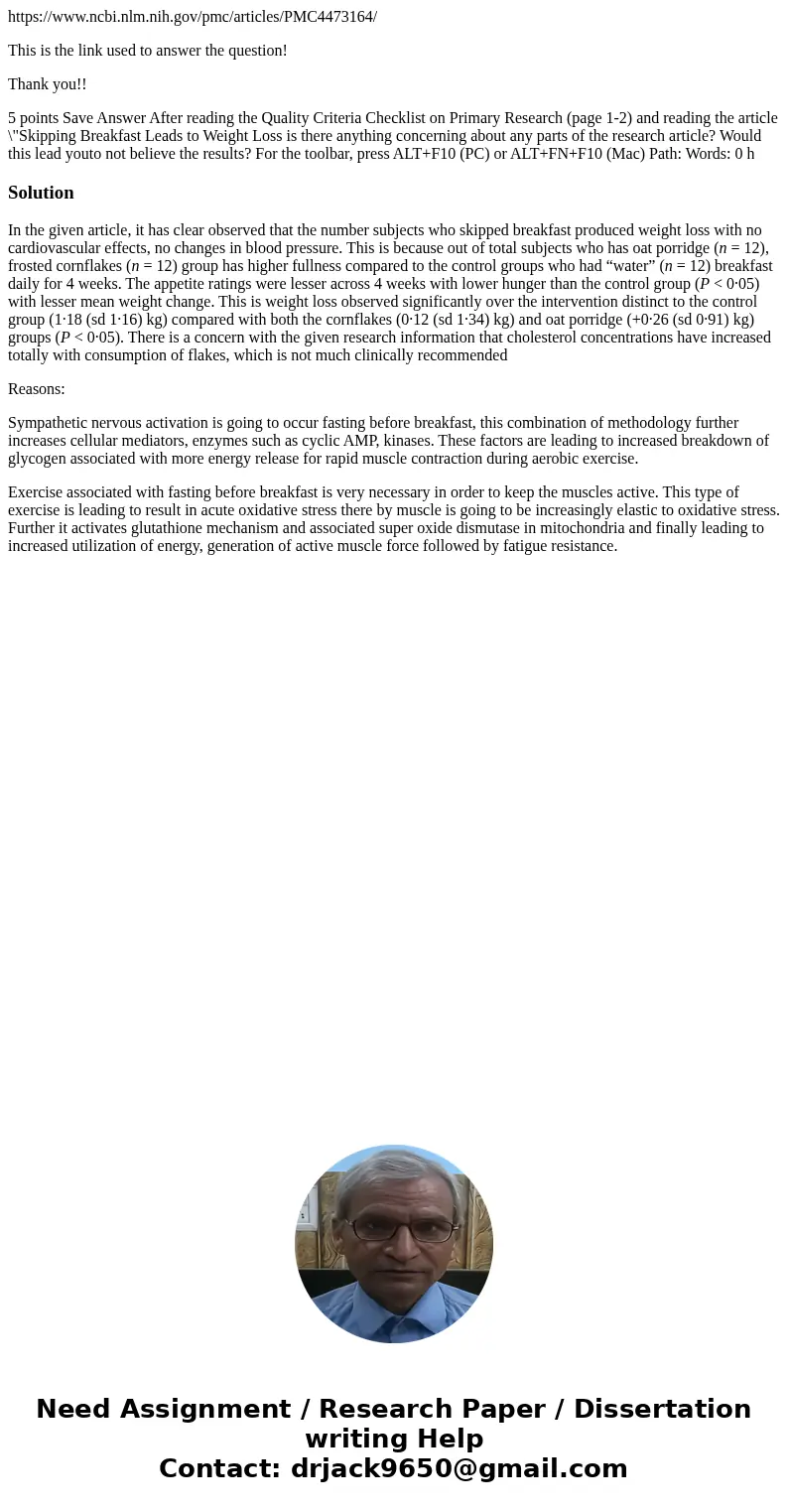httpswwwncbinlmnihgovpmcarticlesPMC4473164 This is the link
https://www.ncbi.nlm.nih.gov/pmc/articles/PMC4473164/
This is the link used to answer the question!
Thank you!!
5 points Save Answer After reading the Quality Criteria Checklist on Primary Research (page 1-2) and reading the article \"Skipping Breakfast Leads to Weight Loss is there anything concerning about any parts of the research article? Would this lead youto not believe the results? For the toolbar, press ALT+F10 (PC) or ALT+FN+F10 (Mac) Path: Words: 0 hSolution
In the given article, it has clear observed that the number subjects who skipped breakfast produced weight loss with no cardiovascular effects, no changes in blood pressure. This is because out of total subjects who has oat porridge (n = 12), frosted cornflakes (n = 12) group has higher fullness compared to the control groups who had “water” (n = 12) breakfast daily for 4 weeks. The appetite ratings were lesser across 4 weeks with lower hunger than the control group (P < 0·05) with lesser mean weight change. This is weight loss observed significantly over the intervention distinct to the control group (1·18 (sd 1·16) kg) compared with both the cornflakes (0·12 (sd 1·34) kg) and oat porridge (+0·26 (sd 0·91) kg) groups (P < 0·05). There is a concern with the given research information that cholesterol concentrations have increased totally with consumption of flakes, which is not much clinically recommended
Reasons:
Sympathetic nervous activation is going to occur fasting before breakfast, this combination of methodology further increases cellular mediators, enzymes such as cyclic AMP, kinases. These factors are leading to increased breakdown of glycogen associated with more energy release for rapid muscle contraction during aerobic exercise.
Exercise associated with fasting before breakfast is very necessary in order to keep the muscles active. This type of exercise is leading to result in acute oxidative stress there by muscle is going to be increasingly elastic to oxidative stress. Further it activates glutathione mechanism and associated super oxide dismutase in mitochondria and finally leading to increased utilization of energy, generation of active muscle force followed by fatigue resistance.

 Homework Sourse
Homework Sourse